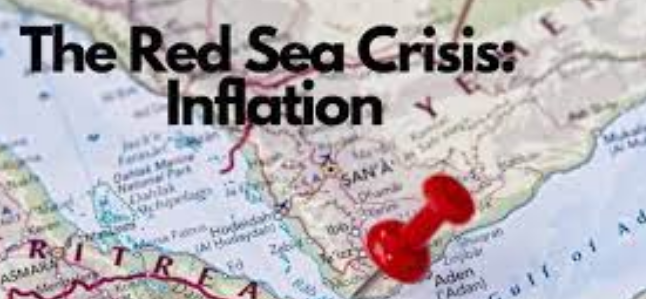Current context:
The Red Sea crisis is causing global supply chains to face issues such as inflated freights, delayed vessel schedules, and product shortages.
About current context:
- The recent events have highlighted the vulnerabilities of global supply chains, prompting the need for reconsidering alternative global trade routes.
- The Bab el-Mandab Strait, located between Yemen and Djibouti, is a key strategic location for global trade.
- The port is a major hub for international trade, with nearly 12% of international merchandise passing through it.

About Red Sea crisis:
- The Red Sea crisis, involving tensions between the Mediterranean and Arabian Seas, is causing concern for India’s trade and security.
- The Houthi rebels, a Shiite Muslim sect from Yemen, recently attacked the Marlin Luanda, an oil tanker flagged in the Marshall Islands, in the Red Sea.
- The vessel, carrying Indian and Bangladeshi crew members, came under a missile strike.
Understanding the Red Sea:
- Geography: The Red Sea, stretching southeastward from Suez, Egypt, to the Bab el-Mandeb Strait, divides the coasts of Egypt, Sudan, and Eritrea from those of Saudi Arabia and Yemen.
- Significance: The Red Sea, a crucial maritime route connecting Europe and Asia, presents unique navigation challenges due to its hot and salty waters..
Impact on India:
Trade Route Vulnerability:
- The Red Sea trade route is vital for India as it is the shortest route for ships traveling from Asia to Europe.
- The disruptions along this route could potentially increase Indian shipments to Europe and Africa by 25-30%.
- India heavily relies on the Bab-el-Mandeb Strait for crude oil and LNG imports, as well as trade with West Asia, Africa, and Europe.
- This route is responsible for approximately 30% of global container traffic.
Houthi Militia Attacks:
- The Houthis, backed by Iran, have been attacking ships in the Red Sea.
- The Yemeni civil war, ongoing since 2014, involves the Houthis and Saudi-led forces.
- The Houthis’ support for Hamas and their response to Israel’s military campaign in Gaza have escalated tensions in the region.
Indian Navy’s Role:
- The Indian Navy’s guided missile destroyer, INS Visakhapatnam, is currently stationed in the Gulf of Aden to protect Indian interests.
- India’s swift response to incidents like the Marlin Luanda attack demonstrates its commitment to securing vital sea lanes.
Diplomatic Efforts:
- India must engage in diplomatic dialogues to address regional tensions.
- Cooperation with international partners, including Gulf states, is essential to ensure stability in the Red Sea.
Conclusion
The Red Sea crisis demands strategic foresight and proactive measures. India’s economic interests and energy security hinge on maintaining safe passage through this critical maritime route. As geopolitical dynamics evolve, India must navigate the complexities to safeguard its trade and national security interests.

